Stargate’s Ripple Effect: The $500 Billion AI Revolution and Its Global Impact
AI Revolution Stargate Project SEA 7 minutes
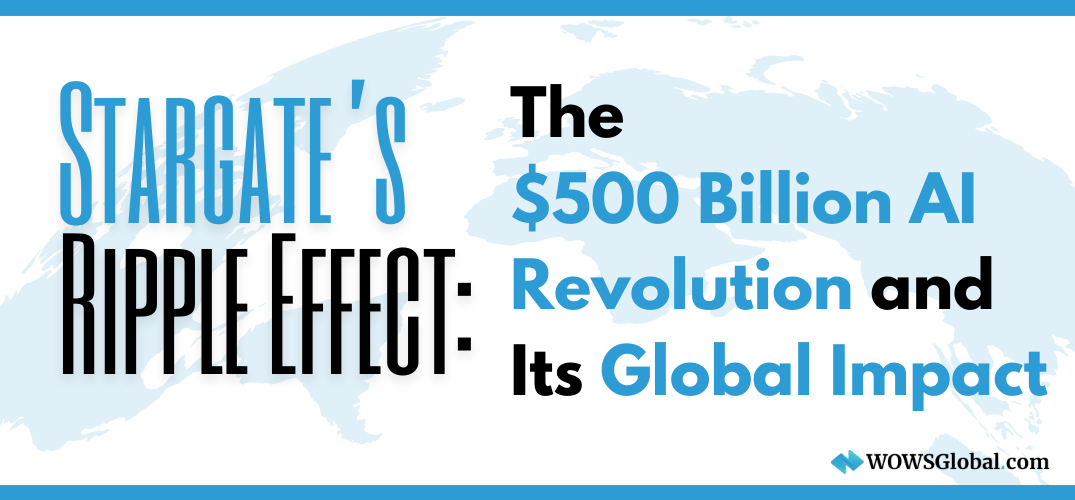
Somewhere in the smoke-filled backrooms of tech’s ruling class, where innovation often mingles with excess, the Stargate Project has been born. At a staggering $500 billion price tag, this American AI colossus, masterminded by OpenAI, SoftBank, and Oracle, is gearing up to turn silicon dreams into reality. It’s like dropping the AI equivalent of the Manhattan Project into the heart of Texas, complete with promises of curing cancer, revolutionizing economies, and creating hundreds of thousands of jobs.
The cherry on top? A ceremonial blessing from none other than Donald Trump, who launched this rocket ship to the future from a White House podium. A surreal blend of corporate ambition and nationalistic fervor, the Stargate Project isn’t just a tech endeavor—it’s America flexing its digital muscles in the great AI arms race.
But for Southeast Asia (SEA) and the Middle East (ME), watching this spectacle unfold is like being a small boat on the edge of a tsunami. The ripples—and the occasional tidal wave—of such an initiative could redefine how these regions plug into the global tech ecosystem.
The U.S. Goes Big on AI
Picture this: the Stargate Project will pump $100 billion per year into creating AI-ready infrastructure across the United States, with the first mega data center breaking ground in Texas. The plan is audacious: build AI models capable of handling unimaginable tasks, from autonomous cities to medical breakthroughs. SoftBank’s Masayoshi Son is leading the charge, alongside Oracle’s Larry Ellison and OpenAI’s Sam Altman—a lineup of power players that’s as bold as the vision itself.
But this is about more than technology. This is geopolitics, economics, and a touch of sci-fi fantasy wrapped in a billion-dollar bow. While China and the EU are hustling to carve out their AI niches, the U.S. is planting a massive flag that says: This is our game.
Stargate's Ripples in SEA: Opportunity or Overload?
Southeast Asia has a front-row seat to the Stargate spectacle, and it’s already a hotbed of digital innovation. Here’s what’s happening:
Singapore’s AI Grand Plan
Singapore isn’t waiting to be left behind. The city-state’s AI National Strategy is funneling billions into AI R&D, with a focus on healthcare, finance, and smart city tech. Pair this with initiatives like AI Singapore (AISG), and it’s clear they’re angling to be the region’s AI nerve center.
Indonesia’s Digital Uprising
Meanwhile, in Jakarta, unicorns like GoTo and Bukalapak are integrating AI into e-commerce and logistics at a breakneck pace. Add in the government's efforts to build a digital economy worth $146 billion by 2025, and the energy is palpable.
Vietnam’s AI Vision
Vietnam is another dark horse. With aggressive policies to become an AI hub by 2030, Hanoi is chasing the Stargate vision on a regional scale.
But let’s be real—most of the region still faces infrastructure and talent shortages that make the U.S.’s Stargate Project feel like a pipe dream. This could either be a wake-up call or an existential challenge for SEA nations to step up their game.
The Middle East: AI on a Mission
Ah, the Middle East, where oil sheiks are swapping crude for code. The Stargate wave is likely to crash here, too, shaking up economies already dabbling in AI ambition.
Saudi Arabia’s NEOM City
This isn’t just a city; it’s a $500 billion AI-powered utopia rising out of the desert. NEOM promises autonomous transport, AI-driven governance, and robotics woven into daily life.
The UAE’s G42 Gambit
Over in Abu Dhabi, G42 is rapidly becoming a global AI juggernaut, partnering with China on genomic research and spearheading AI applications in healthcare and public safety.
Qatar’s Digital Leap
Qatar is also upping its ante with Ooredoo AI Labs, focusing on telecom and smart city projects as part of its long-term vision.
The Global AI Arms Race
The Stargate Project isn’t happening in a vacuum. The global AI arena is heating up, with major players throwing money at future dominance:
China
The Middle Kingdom aims to become the global AI leader by 2030, with tech giants like Baidu and Huawei driving innovations from autonomous vehicles to military applications.
The EU
Europe is taking a more cautious—but no less ambitious—approach, emphasizing ethics and trust in AI while pouring billions into projects like Gaia-X.
What’s Next?
For SEA and the ME, the Stargate Project is both an inspiration and a warning. It underscores the importance of having not just the ambition but the means to execute AI development at scale. Will these regions rise to the occasion? Or will they be swept up in the tide of this AI juggernaut?
One thing’s for sure—Stargate is rewriting the rules of the AI game, and everyone else better keep up.
Stay Ahead of the Curve with WOWS Global!
Follow us to stay updated on the latest developments in AI and discover fast-growing startups revolutionizing industries in Southeast Asia and the Middle East.
Calling all investors and AI startups: Don’t miss our upcoming DealFlow Day, where curated blue-chip AI startups will pitch how they are solving real-world problems with scalable, impactful solutions.

Sign Up as a Startup to be selected and featured.
Sign Up as an Investor to WOWS Dealflow and watch the best AI startups in the pitch.
Related Posts
-
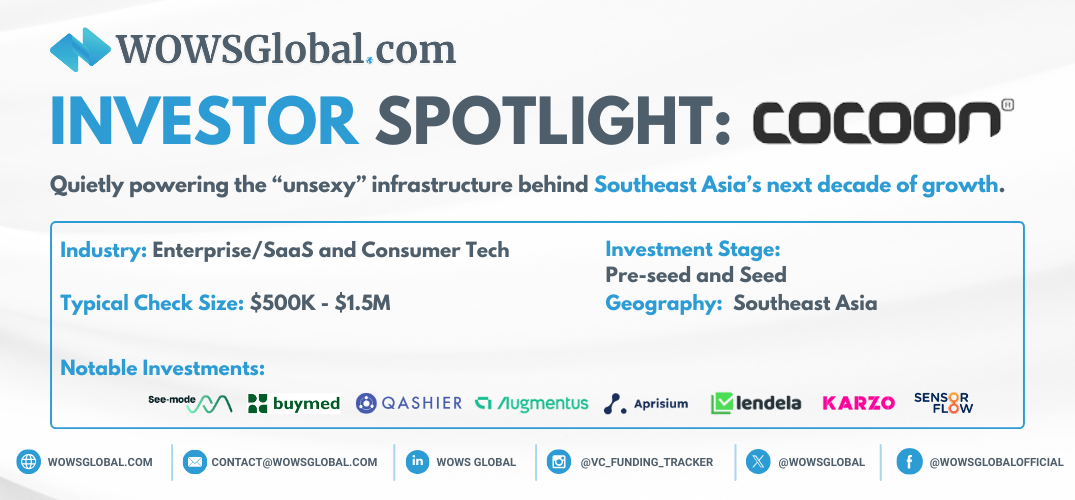
Capital SEA B2B ASEAN 7 Minutes
Cocoon Capital: Backing Southeast Asia’s Quiet B2B Revolution
From AI-powered stroke diagnostics to pharma distribution and SME payment rails, Cocoon Capital backs the “invisible” infrastructure powering Southeast Asia’s next wave of growth. This Investor Spotlight unpacks their B2B and deep-tech thesis, how they invest, and the founders they champion. -
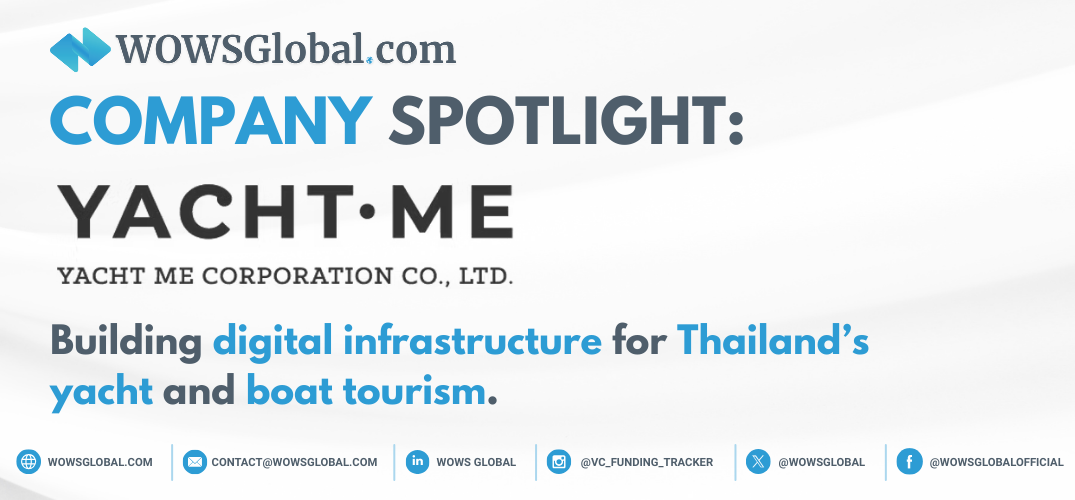
Tourism Travel SEA Tech 5 Minutes
Yacht Me Thailand: Digital Yacht Charter Platform for a Fragmented Market
Yacht Me Thailand is digitising yacht and boat charters across Thailand’s top marine destinations. With operator-first tools, sustainability at its core and ambitions to become a regional boating OTA, the platform is emerging as a notable travel-tech and marine tourism play. -
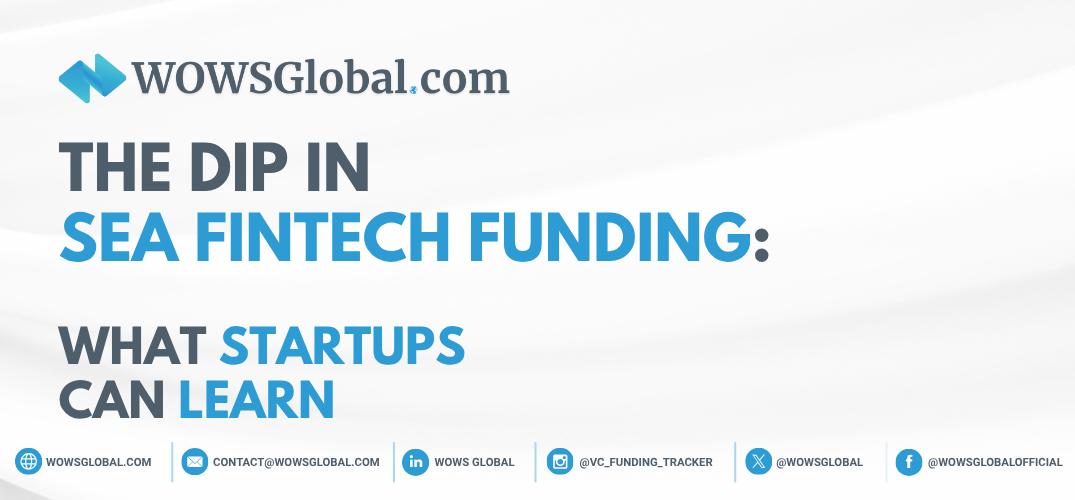
Fintech AI Startups Early Startups SEA 4 Minutes
The Dip in SEA Fintech Funding: What Startups Can Learn
SEA fintech funding has dipped, but capital is still on the field for disciplined teams. This article unpacks what the new funding rules look like and how founders can upgrade models, governance, monetization, and capital stacks. Learn where investor expectations have shifted and how WOWS Global can help you get raise ready. -
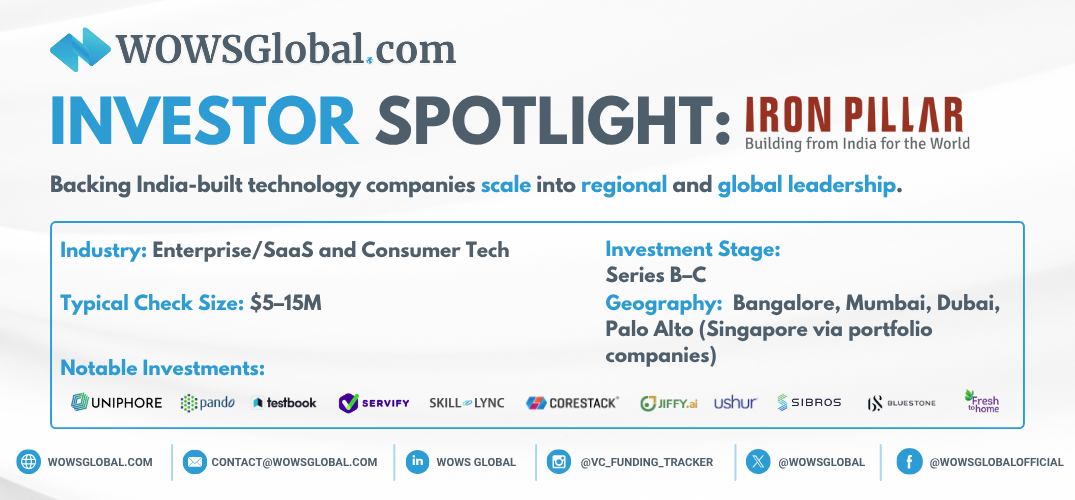
Series B Singapore SEA India 5 Minutes
Iron Pillar: Scaling India-Built Tech Into Southeast Asia
Iron Pillar is a venture-growth firm backing India-built technology as it scales across Southeast Asia. This spotlight covers stage focus, typical checks (US$5–15M), sectors, SEA go-to-market via Singapore, and notable portfolio patterns in SaaS and platforms. For founders and co-investors, it’s a practical guide to where Iron Pillar fits, and how to engage. -

SEA Startup & Venture Capital Proptech Media 4 Minutes
Catcha Group: Company-builders Powering SEA’s Internet Plays
Catcha Group has spent two decades building and backing Southeast Asia’s internet champions, from classifieds and OTT to flexible workspaces. With hands-on operating support and smart consolidation plays, the firm has turned category leaders into headline exits. -
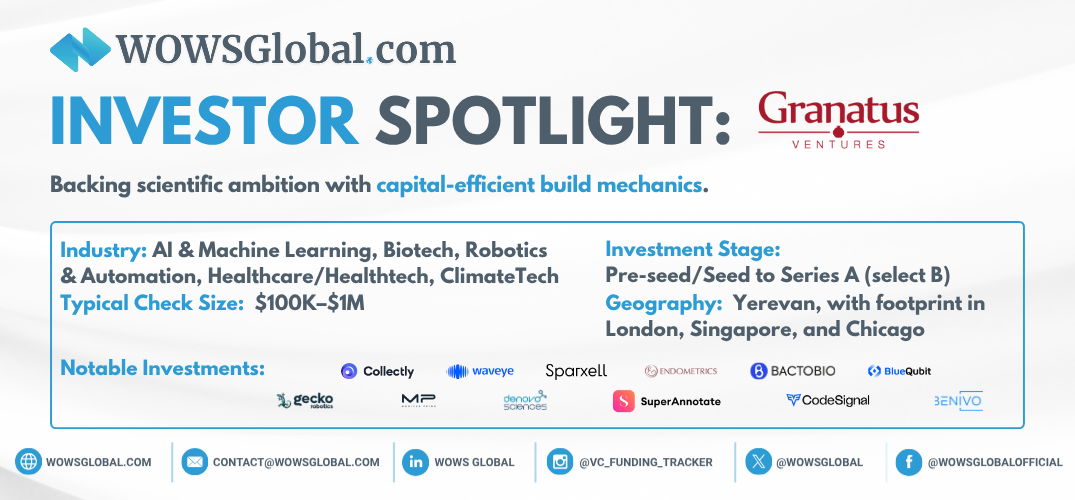
Biotech AI SEA Startup & Venture Capital deep-tech 6 Minutes
Granatus Ventures: Deep-Tech Builders Bridging Armenia and Southeast Asia
Granatus Ventures backs IP-rich startups in AI, biotech, robotics, and advanced/quantum computing, pairing early checks with an Armenia engineering engine and a Singapore touchpoint for SEA pilots. Learn how their SDG-aligned thesis translates into practical capital and deep technical diligence.
